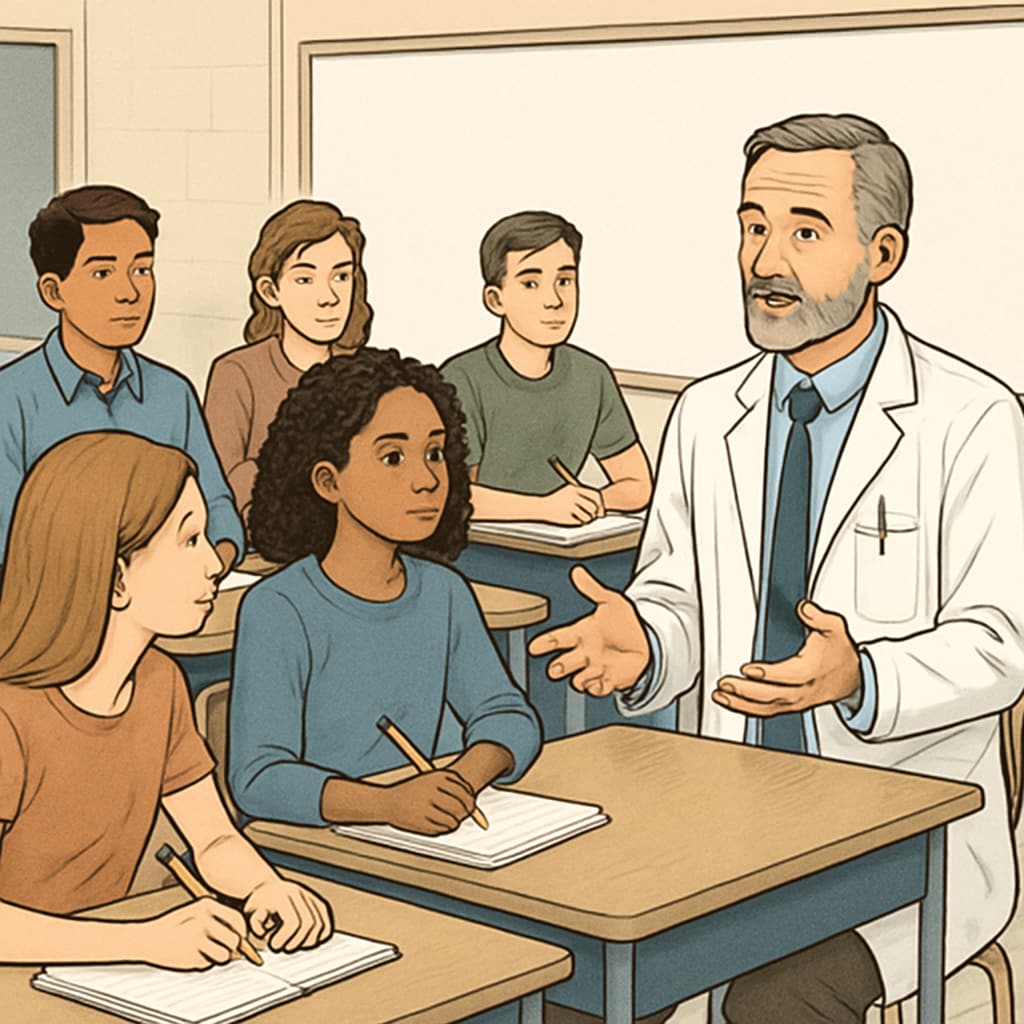For students fascinated by the medical field, the journey toward becoming a doctor can start as early as the K12 educational stage. Structured doctor interviews, school programs, and career advice are powerful tools to help these students make informed decisions about their future. This article explores how schools and mentors can inspire young learners to pursue a medical career while equipping them with the skills and knowledge they need to succeed.
Using Doctor Interviews to Spark Interest in Medicine
Introducing students to real-world professionals through doctor interviews can be a transformative experience. These sessions allow students to understand the day-to-day responsibilities of healthcare workers, the challenges they face, and the rewards of making an impact in people’s lives. For example, students can ask doctors about their educational paths, specialty choices, and work-life balance. These insights help clarify misconceptions and create realistic expectations about the profession.
To facilitate meaningful interviews, schools can:
- Partner with local hospitals or clinics to connect students with medical professionals.
- Provide students with a list of thoughtful questions to ask, such as “What inspired you to choose medicine?” or “What advice would you give to someone considering this career?”
- Encourage reflection sessions after interviews to discuss key takeaways.

Leveraging School Programs to Build Foundational Skills
Many schools offer specialized programs or extracurricular activities that can help students develop the skills required for a career in medicine. For example, science clubs, anatomy classes, and first aid training are excellent opportunities for hands-on learning. These programs nurture curiosity, enhance critical thinking, and build teamwork skills—all crucial for aspiring doctors.
Additionally, schools can organize field trips to healthcare facilities or invite guest speakers from the medical field to share their experiences. These activities not only reinforce classroom learning but also allow students to visualize themselves in medical roles. As a result, students gain both technical knowledge and the confidence to pursue their dreams.

Practical Career Advice for Aspiring Doctors
Early guidance is essential for students to navigate the long and demanding path to becoming a doctor. Teachers, counselors, and mentors play a pivotal role in providing tailored advice. Here are some practical tips for aspiring medical students:
- Focus on STEM Subjects: Excelling in science, technology, engineering, and mathematics (STEM) courses is critical. Encourage students to take advanced placement (AP) or honors classes in biology, chemistry, and physics.
- Develop Strong Study Habits: Medicine requires lifelong learning. Instilling discipline and effective study techniques during K12 years prepares students for the rigorous academic demands of medical school.
- Engage in Volunteering: Volunteering at hospitals, clinics, or community health programs gives students firsthand exposure to healthcare environments while demonstrating their commitment to the field.
- Seek Mentorship: Connecting with a mentor in the medical field can provide invaluable insights and continuous support.
In addition, students should stay informed about medical school prerequisites and entrance exams, such as the MCAT (Medical College Admission Test) in the United States. Early planning ensures a smoother transition to higher education.
Bridging Students and Medical Professionals
One of the most effective ways to prepare students for a medical career is to create opportunities for them to interact with healthcare professionals regularly. Schools can establish partnerships with local health organizations to offer shadowing programs, internships, or career fairs. These experiences allow students to observe medical practices in action and ask questions in real-time.
For example, shadowing a pediatrician for a week can give students a glimpse into patient care and the importance of empathy in medicine. Similarly, participating in a medical career fair exposes them to various specialties, from surgery to radiology, helping them identify areas of interest early on.
By building bridges between students and medical professionals, schools can inspire the next generation of doctors while ensuring they are well-prepared for the challenges ahead.
Conclusion: The journey to becoming a doctor is long, but with the right guidance and support, K12 students can begin laying the foundation for a successful medical career. Through doctor interviews, school programs, and career advice, educators and mentors can ignite a passion for medicine and help students make informed decisions about their futures. These early efforts not only benefit individual students but also contribute to shaping the future of healthcare.
For more information about medical career paths, check out resources like Medical Education on Wikipedia and Medicine on Britannica.
Readability guidance: Short paragraphs and lists summarize key points; passive voice is minimized; transition words are used throughout to ensure smooth reading.


